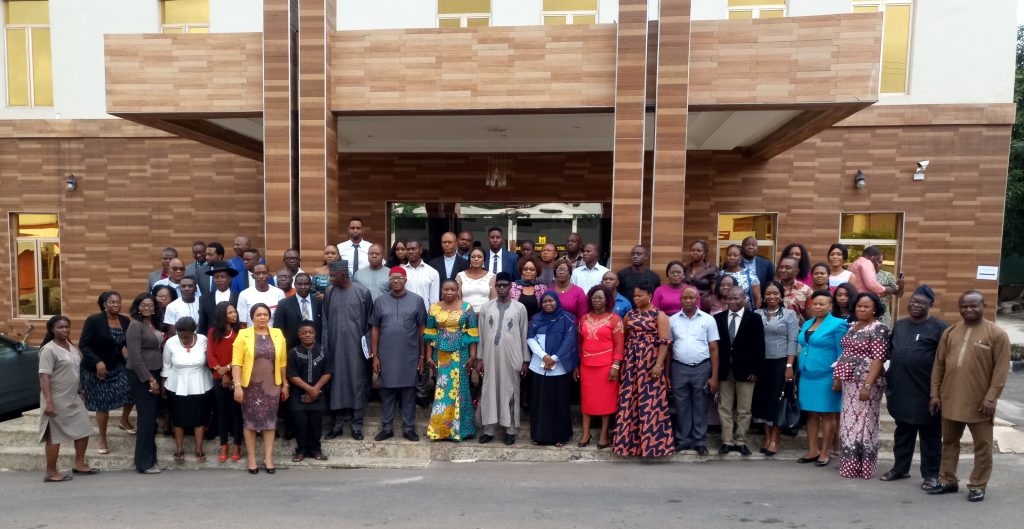Fresh moves to create awareness on climate change and building capacity of sub-national governments commenced last week in Enugu, where the first of a series of Regional Knowledge Deepening Workshops held for two days.

In line with the outcome of the 12th National Council of Environment (NCE) held in Akure, Ondo State in 2018, the Department of Climate Change of the Federal Ministry of Environment in collaboration with the United Nations Development Programme (UNDP) is hosting Regional Climate Change Deepening Workshops on Climate Change across the six geo-political zones of the nation: northcentral, northwest, southsouth, southeast, southwest and northeast.
The purpose of the initiative, according to ministry officials, is to deepen collaboration and synergy with sub-national governments as it relates to climate change issues, its impacts and possible adaptive and mitigation measures available to curb its effect.
From Monday, May 20 to Tuesday, May 21, 2019, stakeholders converged on the Coal City for the flagship, southeast edition of the programme, where Mrs. Ibukun Odusote, Permanent Secretary in the ministry, listed the focus of the workshops to include:
- Outcome of the Conference of Parties COP24, held in Katowice, Poland on December 2018
- Participation of the sub-national government in the drafting of national awareness strategy plan of action.
- Enhancing understanding and collaboration with states on the Nationally Determined Contribution (NDC) and the review of the TNC document as is required in the Paris Agreement.
- Strengthening understanding of global climate finance with a view to enhancing access to the available funds at subnational level
- Developing climate change national education, awareness and outreach strategy at state level.
She said: “If we are able to achieve these objectives, the issue of climate change will become increasingly popular in Nigeria. The Federal Ministry of Environment is looking forward to seeing a time when climate change will be placed on centre stage and given the priority it deserves. To attain to this level, all stakeholders need to work as one in mainstreaming it in to states high priority issue.”
According to her, Nigeria’s ability to address the challenge of climate change and achieve sustainable development is dependent on its human and institutional capacity, and appropriate regulatory and legal framework.
“This is in addition to a good knowledge about the challenge of climate change by the citizenry. Hence, a good climate change governance structure and national strategic plan of action, education and awareness is needed.”
Prince Emeka Mamah, the Enugu State Commissioner for Environment and Mineral Resources, stressed that climate change particularly threatens the southeastern part of Nigeria, and that Enugu State is currently being affected.
“Gully erosion, the most impressive and striking erosion type, has been recognised as one of the major global environmental problems. Virtually all the Local Government Areas in Enugu State are currently under the threats of this phenomenal process, being a sedimentary terrain. It has numerous causes; and these causes can be both naturally and artificially induced, but the underlying geology, change in the climate (global warming) and the severity of accompanying surface processes play a key role,” he said.
He described population as the main driver of climate change in the present era, saying: “Every hour, 10,000 people join the global population, and as a result, every hour, four million tons of carbon dioxide is emitted; 1,500 hectares of forests are cut; and three species go extinct.
“Damage has been so extensive that species extinction is unavoidable. Every Celsius degree of temperature rise above pre-industrial levels is likely to cause the extinction of approximately 10% of species.
“In the past 50 years, there have been a dramatic degradation of the Earth’s natural capital, Concentrations of carbon dioxide, nitrous oxide, and methane have risen; land degradation, loss of biodiversity, and water pollution have increased dramatically; observations of atmospheric composition show that all concentrations of greenhouse gases (GHG) are increasing. Therefore, future warming is unequivocal and already committed.”
Director, Department of Climate Change in the Federal Ministry of Environment, Dr. Yerima Peter Tarfa, in a welcome remark, disclosed that the establishment of Climate Change Desk Offices in all the 36 states and Development of Climate Change tool kit for states was undertaken to strengthen the institutional capacity of states on climate change education, awareness, mitigation, adaptation and climate finance.
“This workshop will equally highlight the role of states in tackling climate change and in the development of the obligatory reporting documents to the United Nations Framework Convention on Climate Change (UNFCCC), the Kyoto Protocol, and the Paris Agreement,” he said, adding that, besides providing opportunities and options for states to access various climate funds available through the climate change window, the workshops offer the platform to take stock of the activities in the state since the development of climate change tool kit, and to discuss the lessons learnt.
